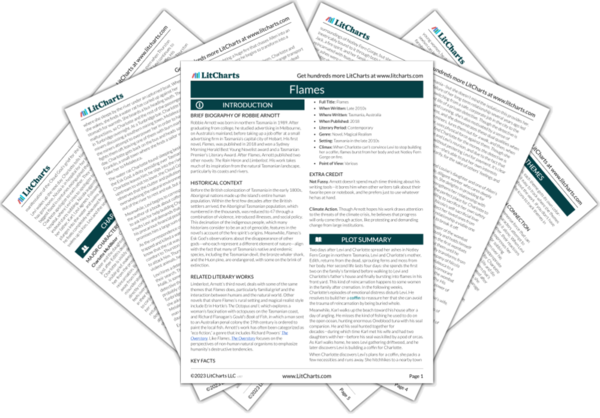Because the detective is telling her story from a point in the future, looking back, the reader gets a hint of foreshadowing here: there’s something ominous, even dangerous, about Levi and Charlotte’s father. And because the detective experiences these subconscious twinges, she joins many of the novel’s other characters in having a slightly supernatural ability, something that connects her to the world around her in ways she doesn’t fully understand.


